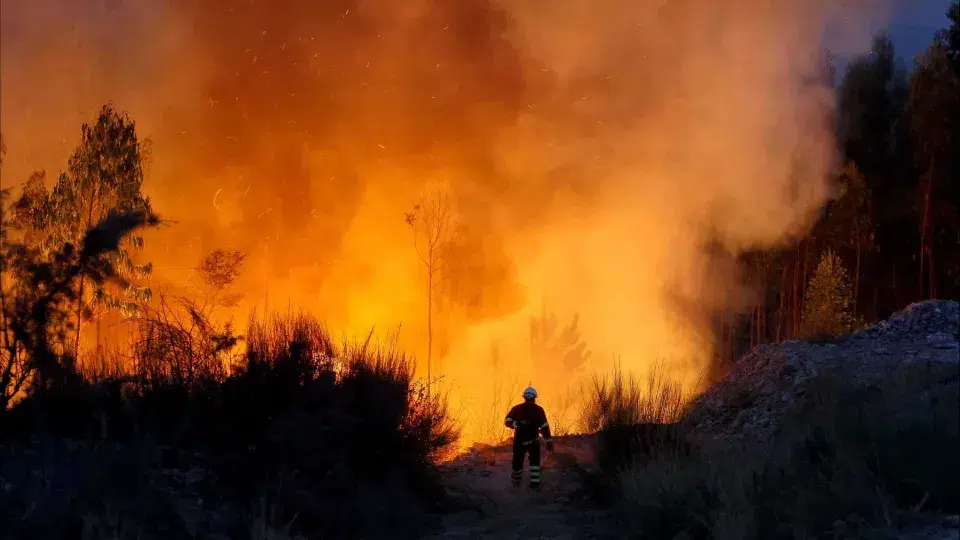
“The lack of coordination among different forces delays response times to fires and enhances their spread. The establishment of forest fire fighting forces in Portugal strengthened the rapid response to forest fires. However, it also contributed to unclear command structures between civil protection, volunteer, and forest fire fighting forces,” concluded the Organisation for Economic Co-operation and Development (OECD) in the report “Towards an Integrated Management of Rural Fires in Portugal,” accessed by Lusa.
The preliminary conclusions of this EU-funded project, conducted in collaboration with the Agency for Integrated Management of Rural Fires (AGIF), were presented today by OECD technicians to Portuguese deputies in the Assembly of the Republic.
The report highlights “coordination challenges” when specialized teams from the Institute for the Conservation of Nature and Forests (ICNF) and civil protection forces must operate together, despite the National Authority for Emergency and Civil Protection (ANEPC) holding command authority.
“These coordination gaps are even more pronounced at the local level, where volunteer firefighters and other actors in suppression (e.g., municipal firefighters and GNR) do not consistently follow the hierarchical chain of command of ANEPC, which can lead to fragmented mobilizations, slower response times, and less efficient resource allocation on the ground,” it states, emphasizing that “this lack of clarity posed challenges in the operational management of fires in 2024.”
According to the OECD, these situations reflect delays in the mobilization of specialized forces and an unclear operational command chain during the initial attack and pre-suppression phases (an operation that occurs after the fire is deemed extinguished) due to the diversity of stakeholders involved.
“As a result, resources were allocated late or insufficiently in the context of multiple and complex fires,” the technicians concluded.
The OECD experts note that Portugal initiated a series of reforms to improve fire management after 2017 with the creation of the Integrated Management System of Rural Fires (SGIFR), but they indicate that the fires of 2024 and 2025 revealed that “they could be even more contained if actions within SGIFR were accelerated.”
According to the organization, the introduction of the SGIFR improved institutional, regulatory, and financial conditions for forest fire management, clarified responsibilities at national, regional, and municipal levels in terms of prevention and response, created AGIF to coordinate all actors involved, and developed a unified strategy.
After 2017, new incentives were created to promote controlled burning and strategic fuel mosaics to reduce fire risk, with public funding for management doubling, now representing nearly half of the total expenses related to fires.
“However, the extent of the damage caused by the forest fires of 2024 and 2025 points to the need to accelerate the implementation of reforms. In 2024, 35 fires caused over 500 hectares accounted for 84% of the total area burned annually, and the summer of 2025 again recorded fires of exceptional dimensions, exceeding the area burned by the fires that triggered reforms in Portugal in 2017,” the OECD notes, emphasizing these fires revealed “several gaps.”
Besides the “coordination failures,” the OECD points to some failures in prevention, such as “a high number of human-caused fires,” persistent gaps in meeting fuel management targets, and local opposition to fire risk and danger maps.
“This delays the adoption of municipal plans for implementing fire management measures, which are essential for obtaining funding and implementing fire regulations,” the document emphasizes, also lamenting the lack of a systematic record of losses and damages caused by forest fires.
To create “a stronger institutional framework,” the OECD recommends clarifying the roles and command structures among firefighters and strengthening their capacity.
The organization also proposes developing “a long-term financing strategy for forest fires to increase the efficiency of expenditures on forest fire management.”




